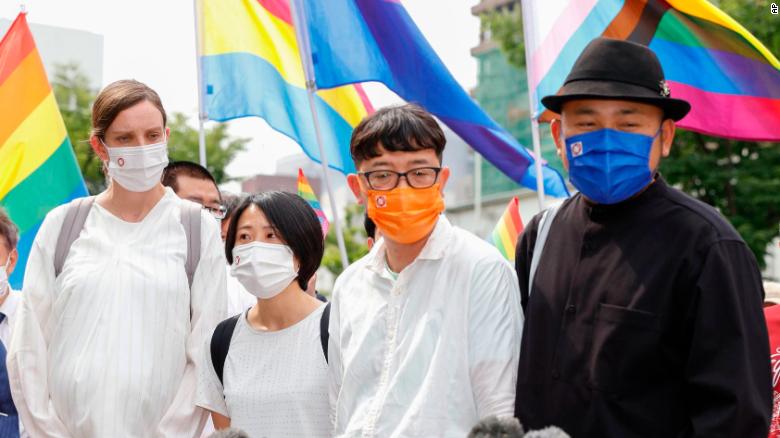
Japan’s ban on same-sex marriage is not unconstitutional, a court has ruled, dealing a blow to gay couples and activists seeking greater rights for the LGBTQ community.
The Osaka district court on Monday dismissed a lawsuit in which three same-sex couples were seeking compensation from the government of 1 million yen (about $7,400) per person, arguing the lack of recognition of same-sex marriages violated their constitutional right to equality.
But the court sided with the government, ruling that under the constitution the definition of marriage did not extend to partnerships between people of the same gender, public broadcaster NHK reported.
The ruling of the Osaka court dashed the hopes of gay rights activists who are pressuring the government to rethink its opposition to same-sex marriage.
The Osaka court’s ruling came in stark contrast to a historic judgment by the Sapporo district court in Japan’s northern Hokkaido prefecture in March 2021.
On that occasion, the Sapporo court ruled the government’s failure to recognize same-sex marriage violated the constitutional right to equality — though it too had dismissed a similar claim for damages.
Japan remains the only Group of Seven (G7) country that has not recognized either same-sex civil unions or same-sex marriage at a national level.
However, some parts of the country issue “partnership certificates” that grant some rights to same-sex couples, such as allowing them to rent properties and have hospital visitation rights.
Same-sex marriages in Asia
Japan, where homosexuality has been legal since 1880, is relatively liberal compared to some Asian nations.
For example, gay sex remains illegal in Singapore despite growing calls to change the colonial-era law.
India’s Supreme Court ruled in 2018 that gay sex was no longer a criminal offense. However, the country does not recognize same-sex marriages.
China also does not recognize same-sex marriages despite growing awareness of LGBTQ issues in the country. While there are no laws against same-sex relationships in China, it remains a taboo topic that is routinely scrutinized and even censored on social media.
Some corners of Asia have seen recent progress on the issue, however.
In 2019, the self-ruled island of Taiwan became the first place in Asia to legalize same-sex marriage.
And this month, Thailand edged closer to becoming the first place in Southeast Asia to legalize same-sex unions when lawmakers passed four different bills aiming to provide greater rights to gay couples, such as the ability to adopt children and manage assets jointly.









